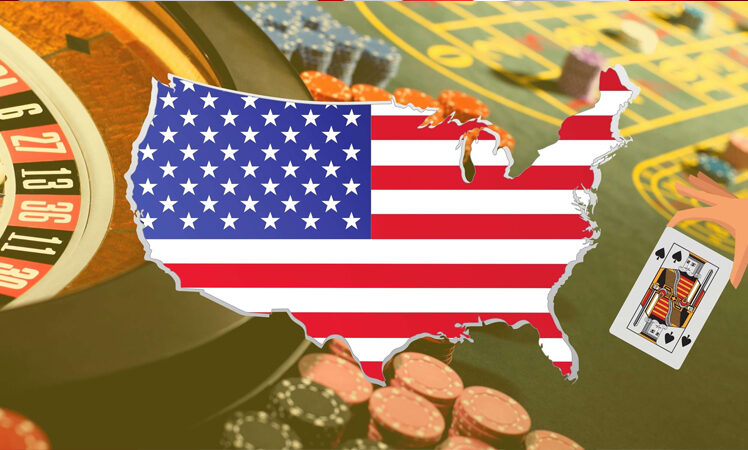- Casino News
- USA News
Top Gaming States Challenge Rise of Prediction Markets


States Defend Betting Laws
As the Commodity Futures Trading Commission (CFTC) prepares for a high-stakes roundtable on April 30 to assess the future of sports-based prediction markets, opposition is mounting from some of the most influential voices in U.S. gaming. Submissions to the commission from Nevada and New Jersey—the country’s two leading commercial gaming states—signal deep concern over the legal and regulatory implications of these rapidly evolving markets.
The CFTC began seeking public comment in February as it attempts to navigate the murky intersection between financial speculation and sports wagering. To date, the commission has released 29 public submissions, with many coming from tribal gaming interests wary of potential encroachments on sovereignty and exclusivity. But in a notable development, trade associations from Nevada and New Jersey have joined the chorus, arguing that federally sanctioned prediction markets threaten the integrity of the regulated sports betting industry.
The Rise of Prediction Markets
These platforms are structured as federally regulated exchanges and, under current law, operate legally in all 50 states. Unlike state-regulated sportsbooks, however, they are not classified as sports betting and therefore are not subject to the same tax and consumer protection frameworks. Billions of dollars were reportedly traded in election contracts in late 2024, and the market is now expanding into sports with increasing momentum.
The CFTC's regulatory posture remains unclear, particularly following the change in presidential administrations. Further complicating matters is the political overlap: Donald Trump Jr., son of former president Donald Trump, was appointed an adviser to Kalshi in January, and Trump’s nominee for the next CFTC chair, Brian Quintenz, sits on Kalshi’s board.
Nevada's Response
The Nevada Resort Association (NRA), the state’s most influential gaming lobby, submitted a strongly worded response on April 3. Known for promoting Nevada’s long-standing leadership in legal gaming, the group took a far more confrontational tone this time.
“Nevada stands as the nation’s home for legal gaming and we have spent decades offering safe, legal sports betting to Americans,” wrote NRA president and CEO Virginia Valentine. “Allowing for sports wagering to happen outside of state regulated channels puts citizens at risk and endangers the critical economic support gaming provides.”
Valentine noted that when the Professional and Amateur Sports Protection Act (PASPA) was struck down in 2018, states turned to Nevada for regulatory guidance. Now, she argued, federally legal prediction markets undermine the structure Nevada helped build.
Yet the state is already on the defensive. On March 4, the Nevada Gaming Control Board issued a cease-and-desist order against Kalshi. The platform responded with a lawsuit and was granted a preliminary injunction earlier this month. While the legal battle continues, experts say Nevada faces an uphill fight. In its April 2 submission, the Casino Association of New Jersey (CANJ) struck a more measured tone but expressed similar concerns. CANJ president Mark Giannantonio pointed to the state’s decade-long legal battle that ultimately led to PASPA’s repeal and the birth of a multibillion-dollar sports betting industry.
“New Jersey fought for almost a decade to bring legalised sports betting to our state and the rest of the country,” Giannantonio wrote. “Our state policymakers knew people were betting on sports, but they were doing so illegally and with no consumer protections.”
Giannantonio argued that federally regulated prediction markets now undermine those hard-fought gains, bypassing state regulations, consumer safeguards, and crucial tax revenue streams. New Jersey’s Division of Gaming Enforcement issued its own cease-and-desist order to Kalshi on March 27. That case is also pending, with a hearing rescheduled for April 30—the same day as the CFTC roundtable.
Allowing for sports wagering to happen outside of state regulated channels puts citizens at risk and endangers the critical economic support gaming provides.
Industry-Wide Alarm
Beyond Nevada and New Jersey, concerns are emerging from across the gaming ecosystem. State regulators, financial watchdogs, and responsible gaming advocates have all raised red flags over the legal ambiguity, lack of taxation, and potential for consumer harm that prediction markets present.
The CFTC’s upcoming roundtable is expected to bring together stakeholders from across the spectrum, but its direction remains uncertain. With Kalshi continuing to expand and legal battles underway in multiple jurisdictions, the commission's decision—should it make one—could have lasting implications for the future of betting, finance, and federal oversight.
As the date approaches, one thing is clear: prediction markets are no longer a niche curiosity. They are now a national issue with billion-dollar consequences—and America’s most powerful gaming states are gearing up for a regulatory showdown.








